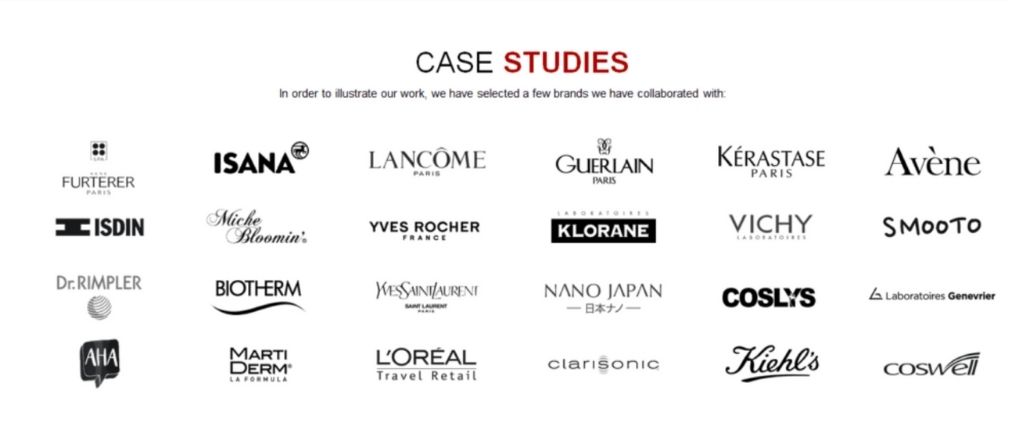Over time there has been a revolution in the beauty industry of China. In the past, this industry and the Chinese as a whole are not aware of the advanced beauty trends, but now things got twisted. According to the most recent survey, about 30 percent of the disposable income of the Chinese working women is spent on cosmetics and beauty therapies.

Moreover, the overall beauty market is evolving at a steady pace of 20 percent per year. Although the Chinese market is establishing itself a potentially competitive and lucrative market, however, there are five key marketing ingredients that the retailers of beauty products should maintain in mind while doing business in China.
- Holistic theory:
The Chinese market is witnessing a transformation towards the Holistic beauty trend. The labels which once have only a clinical approach are now trading like hot cakes in the Chinese markets. Furthermore, organic and environment-friendly products are the central focus point of various international brands, for investment purposes. Moreover, the local brands are currently having their moment. The classic example in this regard is that of Lu Ming Tang, a brand developed by a French beauty expert, Marie Amiand. The mentioned above name fuses the Chinese tea wisdom with the skincare expertise of French origin.
Niche Brands:
Qsio, Sisley, and Jo Malone are some of the examples that fall entirely into the classification of “Niche” brands. Somewhere and to some extent these labels are overlapped with the Holistic beauty as the brands which operating within the Chinese market even though on a smaller scale are have a more loyal customer and their brand customer increase with the growing beauty demands and sophistication of the target customers.
Beauty Products from Korea/ K-Beauty:
Due to the environmental similarities and also because of the bonus of low price when compared to various western brands, the Chinese market is considered export heaven for Korean products. If you ever get a chance to visit the duty-free mall of Seoul, you will witness an overwhelming crowd wandering to find an elixir to eternal beauty. The main logic behind this ever-increasing the desire for Korean beauty products is the one mentioned above that these goods considered being best suited on the Chinese epidermis.
Brand Ambassadors:
Although, we talk about beauty products associated with female buyers, however, the twist in the marketing of these products is to choose a male. It has been observed that the brands with male ambassadors most likely the “pop idols” are more convincing than the brands with female ambassadors and it would be an added blessing if the male representative is of Korean origin. The perfect example in this respect is that of Biotherm.
Not each brand in China will have the capacity to enroll an A-List VIP to end up distinctly their envoy
In spite of the fact that not each brand in China will have the capacity to enroll an A-List VIP to end up distinctly their envoy, the significance of influencer support needs to rank high when assembling an advertising procedure. The fame of backers remains greatly solid among Chinese shoppers with about three out of four review respondents (73%) saying they will probably purchase an item or visit an eatery embraced by a big name, representative, or another supporter, for example, a KOL. Over half (56%) of study respondents say these supports impact them to buy sustenance items or visit eateries a few circumstances or more, every month
Digital technology
In this era of digital technology, if you want to endure, then you have to adapt accordingly. China is emerging as a nation where shopping online is the latest trend. According to a release, almost one-third of the sale of beauty products in China are made online. Moreover, in this regard, 70 percent of the online transactions are made with Tmall. China with its population of more than 100 billion, is considered a market with great opportunities. So, if you are planning to conquer this market, then you have to play by their rules.
They have already depended entirely on conventional retail channels ought to consider systems to advance and offer their items on the web
As web-based business shopping keeps on picking up fame among buyers in China, marks that may have already depended entirely on conventional retail channels ought to consider systems to advance and offer their items on the web. The items frequently purchased online are non-perishable snacks, for example, treats and chips, with four in five customers (80%) saying that they get them on the web. In any case, the market measure for perishable things is not a long way behind with about half (47%) purchasing dairy items on the web. For outside items, there are a few claims to fame sites outfitted towards import sustenances, for example, tootoo.cn and yiguo.com that can be utilized to achieve extraordinary specialty groups of onlookers. In this way, offering items on internet business sites can be an awesome procedure not to simply expand expansiveness of accessibility but rather additionally to additionally loan validity for brands and drive more disconnected retail.
We are a Digital marketing agency based in China.

We are a professional Marketing Company and help International Brands in China. Check out our Case studies and services.


1 comment